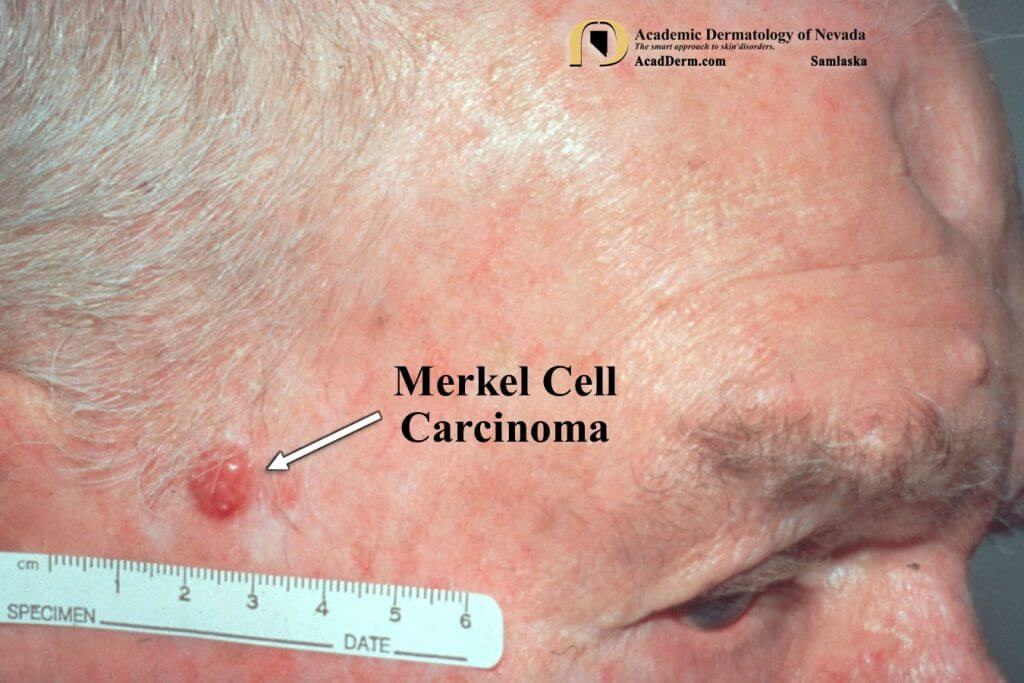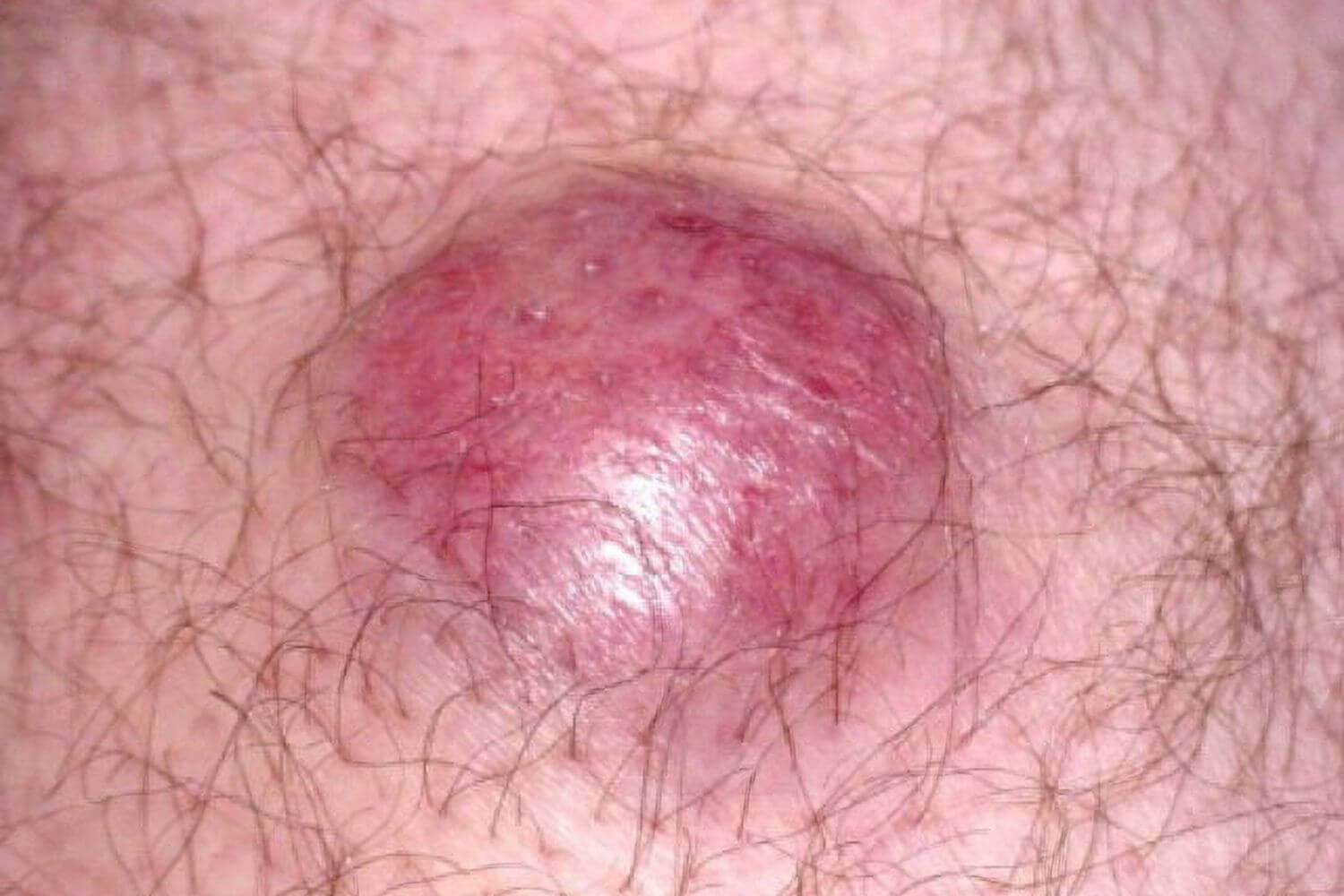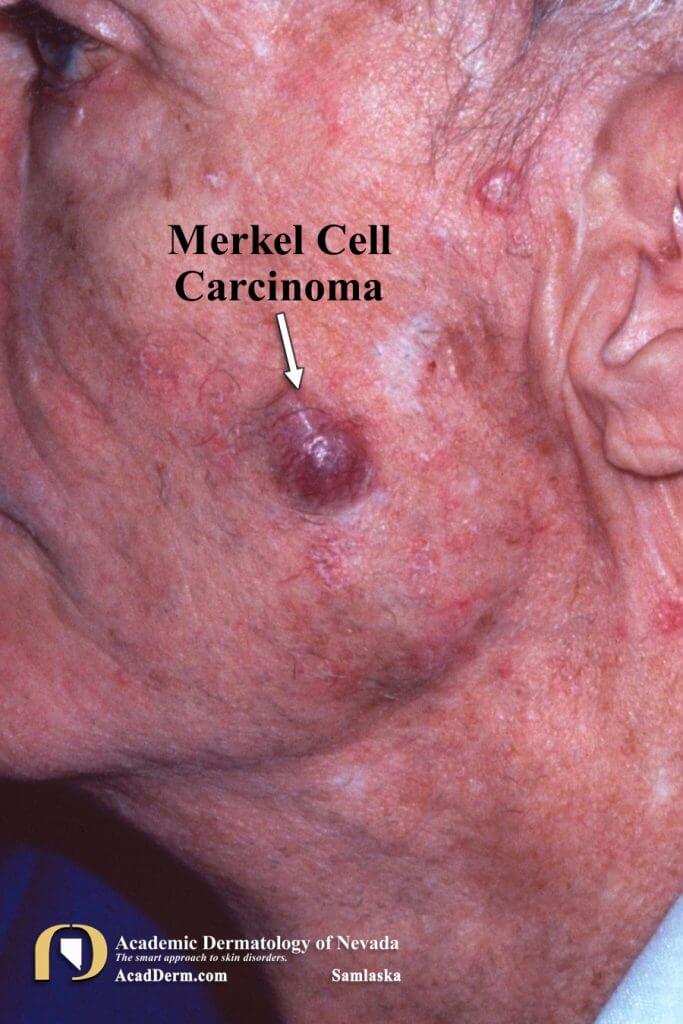Merkel Cell Carcinoma Treatments from U.S. Dermatology Partners
What is Merkel Cell Carcinoma?
Skin cancer is a common concern in the U.S. Estimates reported by the American Academy of Dermatology suggest one in five people in the U.S. will develop some form of skin cancer. Merkel cell carcinoma is among the rarest forms of skin cancer, wherein estimates by the Skin Cancer Foundation suggest that only one in 130,000 people in the U.S. will be diagnosed with Merkel cell carcinoma. Like melanoma, Merkel cell carcinoma is an aggressive form of skin cancer with a high mortality rate. As with most potentially aggressive malignancies, early detection is the best way to decrease the risk of death associated with Merkel cell carcinoma. You can learn more about diagnosis and treatment options for Merkel cell carcinoma on this page.

Photo Credit: Academic Dermatology of Nevada
Merkel cell carcinoma is a rare form of skin cancer that arises from Merkel cells, cells that reside deeper in the skin and function to send ‘touch’ signals from outside the skin to the inside of the body. The diagnosis of Merkel cell carcinoma is ultimately made by an assessment under the microscope after a skin biopsy has been performed. Skin biopsies are interpreted by dermatopathologists, doctors who specialize in evaluating skin under the microscope. Dermatopathologists are well equipped to make this diagnosis accurately when skin tissue is submitted in a biopsy specimen. Unfortunately, when Merkel cells become cancerous, they also become aggressive. Merkel cell carcinoma can metastasize (spread) quickly, making it one of the most aggressive types of cancer. While treatment for Merkel cell carcinoma may be successful, even with treatment Merkel cell carcinoma may evade what appears to be disease remission, and recur.
Find This Service Near You
Signs and Symptoms of Merkel Cell Carcinoma

Photo Credit: Verywell Health
Merkel cell carcinoma tumors don’t always look the same, which can make them difficult to spot.
While Merkel Cell Carcinoma lesions can look different from one another, some common characteristics include:
- Shiny, pearly, smooth lesions
- Size varies, but lesions are usually fairly large, upwards of the size of a dime
- Coloring is usually pink/red, blue, or purple-hued
- Arises within areas of skin that have frequent sun exposure like the head and neck
- May not be painful/sensitive to the touch
Causes and Risk Factors of Merkel Cell Carcinoma
The risk factors for Merkel cell carcinoma are easily remembered with the following mnemonic device:
- A – Asymptomatic tumors (not painful or sensitive)
- E – Expanding or Evolving quickly
- I – Immune system suppression
- O – Older than 50
- U – UV exposure
Diagnosis and Treatment of Merkel Cell Carcinoma

Photo Credit: Academic Dermatology of Nevada
Diagnosing Merkel cell carcinoma typically begins with a visual inspection.
When you or your dermatologist notice a concerning spot, the next step will likely be to perform a skin biopsy to examine the cells in the skin tissue. A biopsy involves removing a small section of the skin lesion and examining it under a microscope. If Merkel cell carcinoma is discovered in a skin biopsy, a staging work-up is pursued which typically involves imaging, bloodwork, and potentially the surgical sampling of a local lymph node (termed a ‘sentinel lymph node biopsy’) to assess the local region for metastatic spread.
When it comes to addressing the treatment of Merkel cell carcinoma, your dermatologist will likely partner with a team of medical professionals, including oncologists and surgeons to develop an appropriate treatment plan. Treating Merkel cell carcinoma usually begins with surgical removal of the cancerous lesion. Once the tumor is removed, patients often also receive chemotherapy, radiation, immunotherapy, or some combination of these treatments.
The Importance of Early Detection
As with all aggressive cancers, earlier detection may allow for more successful treatment. Merkel cell carcinoma is one of the deadliest forms of skin cancer because it is often discovered in late stages. Regular self-skin exams to look for new or changing skin lesions performed approximately once per month, as well as annual professional skin cancer screenings, are the key to early detection and successful treatment of Merkel cell carcinoma.
Visit a Dermatologist for Skin Cancer Screenings
Early intervention is essential to ensure successful treatment of any skin cancer, including Merkel cell carcinoma. Regular self-checks coupled with an annual dermatologic examination will significantly reduce your risk for Merkel cell carcinoma-related death. If it’s time for an annual skin cancer screening or you’ve noticed an unusual skin lesion, the U.S. Dermatology Partners team has you covered. It’s easy to get started working with our team. Simply fill out our online scheduling request form. Once a local dermatology practice receives your request, they will reach out to answer your questions and finalize the details of your visit.
*Results may vary by individual

